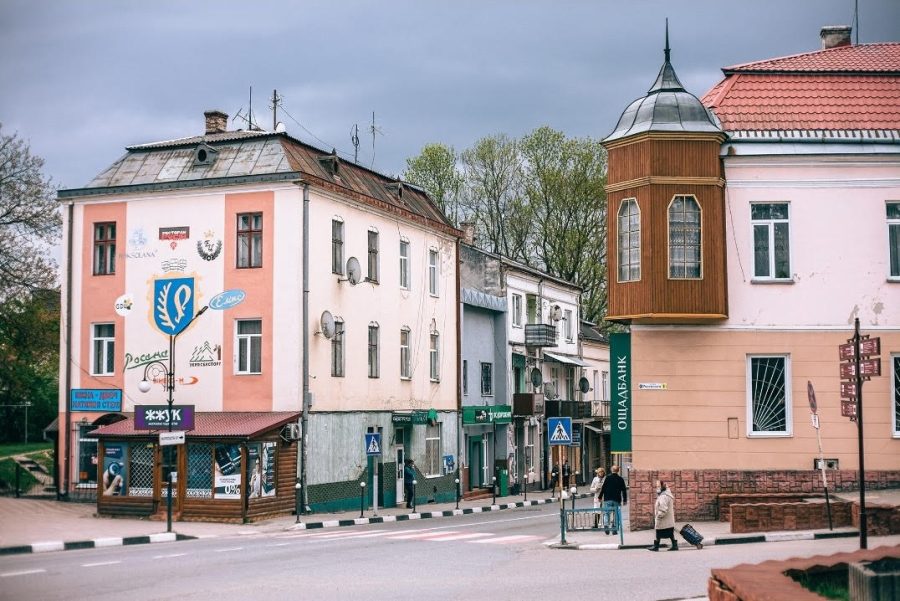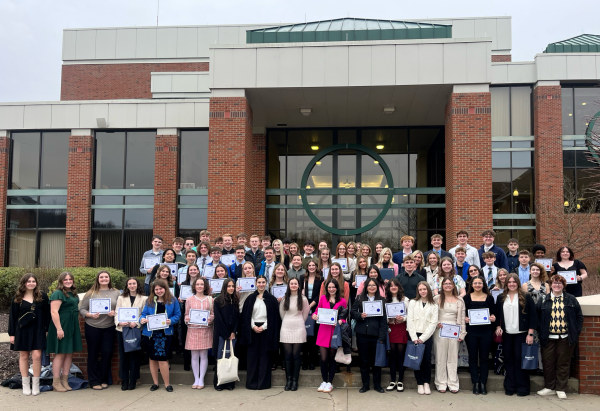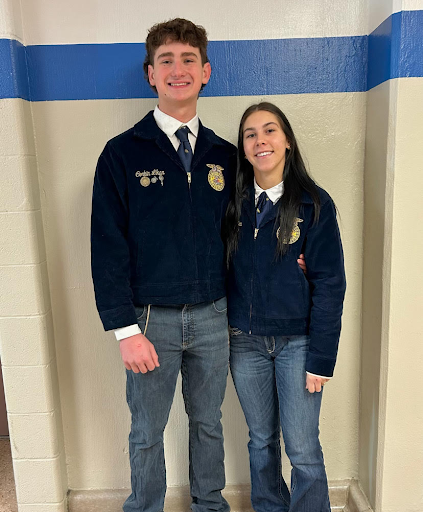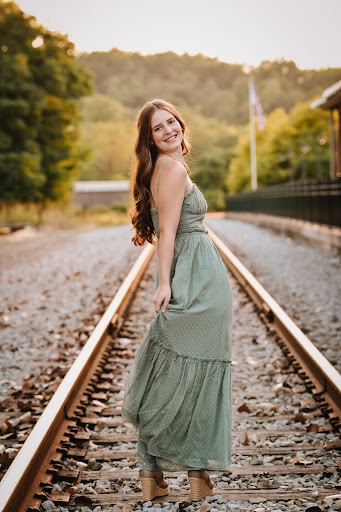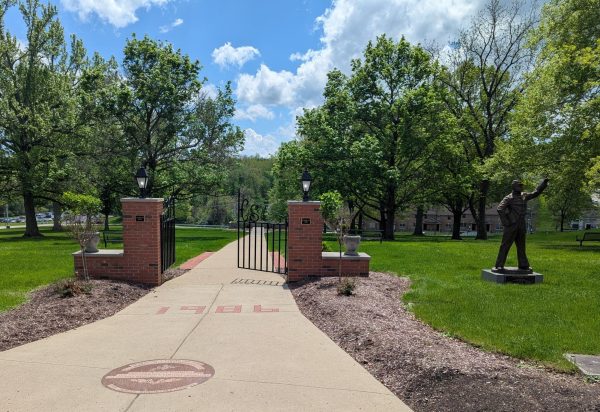Ukrainian family shares insight of war with Russia
Photo courtesy of Yuilya Pryplotska
Yuilya fled to the city of Rohatyn after hearing about the attack on Ukraine. She believes that this city is safer than where she used to live. One of the city’s streets is depicted above.
Living with the outbreak of the war between Ukraine and Russia, Ukrainian civilians Yuilya and Halyna Pryplotska are challenged in their everyday life. They are trying to stay positive during these trying times.
When Ukraine was first attacked, Yuilya, who was studying at Polytechnic National University in Lviv, received a phone call from her mother, Halyna Pryplotska, letting her know that the war had started. Speechless, she called her friends and family to make sure everyone was okay, then she started reading online about the cities that were bombed. She gathered her belongings and started researching the nearest bomb shelters.
“…I just couldn’t bring myself to get quality sleep for the next couple of days and nights. I would fall asleep and wake up from the slightest sound, like a car going near my window,” says Yuliya.
When Ukraine was first attacked, Yuilya stayed in Lviv, which is about seven hours from Kyiv, the capital city being attacked. She did not feel safe there, considering Lviv is the largest city in western Ukraine. She decided to leave and get back to her family, who lives two hours away from the university she was attending. But, she still says that she does not feel completely safe.
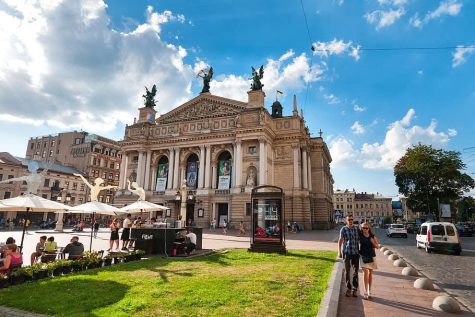
Yuilya says, “It is not possible to feel completely safe when you hear sirens. But I can say that as of right now, it’s much safer here than in most other parts of the country.”
Yuliya says that she and her family are staying in Ukraine because they are far from active war zones (they are about seven hours from active war zones and forty miles from the largest city in Western Ukraine), their, “house is still standing,” and they were able to keep their jobs, as her mother is a doctor at a local hospital in Ukraine.
“Our military is doing fantastic, so there might not be a reason to leave [Ukraine]. But if this war goes sideways, and we end up having to leave [Ukraine], the option to escape to Poland is still there,” says Yuilya when asked if her family has considered going to the border of Poland for humanitarian relief.
A positive outlet during these tough times for Halyna Pryplotska is knowing that her friends and family are safe. She stays distracted through work, as she doesn’t have much time to read or watch the news.
Yuliya says that Ukrianians want the North Atlantic Treaty Organization (NATO) to “protect the sky” in order for
Ukrainian soldiers to be able to handle the rest on the ground. Yuliya says that many foreign volunteers are coming to Ukraine to aid as doctors and soldiers, for which she says Ukrainians will forever be grateful.
“Seeing Russians attack children’s hospitals, schools and residential areas is not something you can get through easily, so we have been posting online every day for the past eighteen days tagging NATO and world leaders to help protect us, civilians, from bombs falling from the sky,” Yuliya states.
She says that their president in Ukraine, Volodymyr Zelenskyy, used to be a comedian and they chose him to be president even though he had no political experience. What won Ukrainians over was his anti-corruption platform, which means that he was against unlawful conduct. She says that he ended up being the best president Ukraine has ever had.
Yuliya speaks highly of her president: “Our president is a true hero…I truly wish for every country to have such a leader. It is not an easy task to keep people going and motivate them to fight such an enemy as Russia, but [Zelenskyy] is doing great.”
Yuliya remembers the United States warning Ukraine about a possible attack, given the fact that there were Russian troops near the Ukrainian border. She says that Russia has never been friendly with Ukraine, and she claims that Russia does not recognize Ukraine as a separate country. But she never believed that Russia was actually going to invade.
Yuliya hasn’t personally received aid from any foreign countries: “Fortunately, my family has enough food, water and medical supplies, so we don’t need any help as of right now. On the contrary, we share our resources with newly arrived refugees. At a time like this, Ukrainians have come together to help each other out, sharing food and welcoming strangers into our homes.”
The Pryplotska family takes in refugees into their home. Many refugees are coming to the Western side of Ukraine, where Yuliya and Haylna live, seeking a safer place, away from active war zones, and they are hopeful that it stays as safe as it can be.
Yuliya’s mother, Halyna, does not feel completely safe where she and her family are living right now, with the Russians attacking the western side of Ukraine.
Haylna says, “I would like to express gratitude for spreading information about the ongoing war. Knowing that people are concerned with what’s happening in our country today makes us feel that we are not alone in this fight.
Ukraine is on its way to being reborn as a beautiful European country with no ties to our past history with Russia. Pray for Ukraine.”
Yuliya wants Americans to know, “To anyone reading this, I’d say appreciate what you have right now. [Appreciate] your family, friends, routine everyday life, sports practice, and even that homework you’re so sick and tired of doing. Trust me when I say that I would give everything to be doing my boring homework right now instead of writing about war in my home country.”

